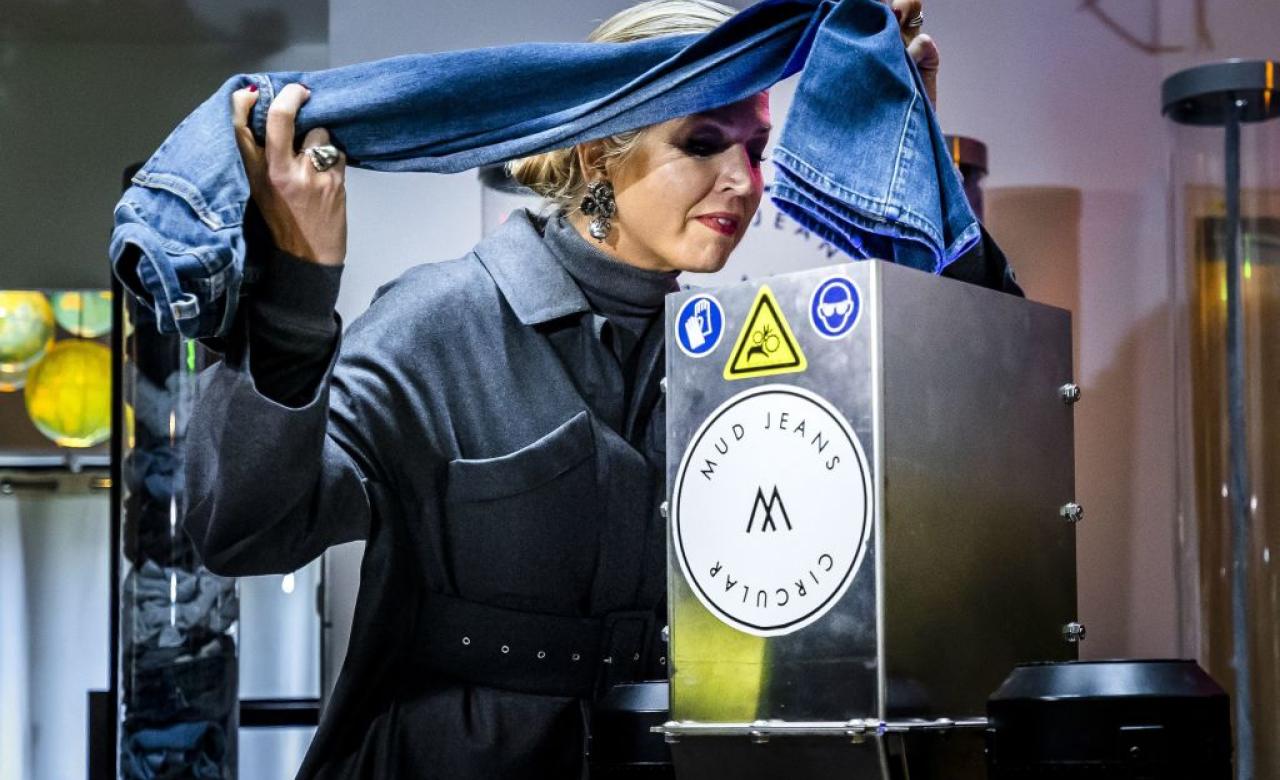As the European Union seeks to implement its green textiles agenda during 2023-2024, Dr Nazia M. Habib demonstrated the power of her innovative systems-based policy analysis tool, Cambridge Policy Boot Camp (CPBC), to support the sector in identifying breakthrough system redesign strategies in order to scale the transition to closed-loop recycling of textiles.
On the 28th February, in partnership with industry consultancy 2050 and funded by the NERC, Dr Habib and her team brought together a cross section of 35 leading textile industry stakeholders to pool collective knowledge and co-create system redesign concepts that could drive innovation and rapid scaling up of the industrial recycling capacity that is needed in the EU.
“This is the first time systems thinking and systems based policy analysis has been applied to the global value chains of the textile sector,” Dr Habib commented. “Our success demonstrates that this methodology has a lot to offer the sector in crafting the policies it needs to achieve its sustainability objectives.”
Textile recycling objectives are part of the European Union's Strategy for Sustainable and Circular Textiles which was introduced in 2022 to provide the policy and political framework to regulate the sustainability impacts of the EU textiles sector and to move it towards a ‘circular’ business model.
CPBC participants articulated five strategic policy concepts across three themes which were to:
- Think globally and align regulations and rules right across the global value chain. Develop strategies for transitioning the current labour force in production countries to a circular economy model.
- Develop investment pathways for scaling up recycling infrastructure in the EU and across its global value chains.
- Create mechanisms to improve data collection, transparency, information and data sharing.
Dr Habib commented, “It is these innovations in system design that will be critical in delivering the objectives of the EU Sustainable and Circular Textiles Strategy.”
Dr Habib commented, “The workshop’s unanimous call for a global approach to closed loop textile recycling - including addressing labour issues in supply chains - is a clear break from the EU approach. Our workshop provides strong evidence that the industry wants EU policy makers to pivot away from the current EU centric policies.”
The CPBC gave the opportunity for participants to co-create solutions, through collaboration and cross sector knowledge sharing, for redesigning the EU textile recycling system using CRSD’s innovative systems based tools. The target CPBC activities allowed for rapid identification of solutions drawing in the collective expertise of participants - which was appreciated by all.
Cherie Nelson, Senior Head of Buying at Urban Outfitters stated: “That’s an impressive outcome from a relatively short session.”
Professor Kate Goldsworthy, University of the Arts London stated: “Thank you so much for an inspiring process and outcomes!”
Alan Wheeler, Textile Recycling Association stated: “Very thought-provoking. This workshop demonstrates why it is important to understand the ecological impacts of our clothing along their entire supply chain from initial production, through the consumer use phase, to initial end use phase, any re-use cycles and recycling back into the circular textiles system.”
The research forms part of a growing CRSD systems based textile research program using action-based research to support the sustainability transition of the textile sector. This includes working with the UNEP on using systems based modelling to estimate the impact of circular economy policies on the global textile value chains.
For more information please contact: crsd@landecon.cam.ac.uk or visit https://www.crsd.landecon.cam.ac.uk/.
Notes: What is the Cambridge Policy Boot Camp?
The Cambridge Policy Boot Camp (CPBC) is a transdisciplinary virtually delivered ‘action research’ method designed to quickly identify and document potential solutions for a complex policy problem. The method effectively integrates multiple perspectives, from multiple stakeholders and delivers resilient solutions within given contexts, resources and timeframes. It is a tried and tested methodology to discover how to improve policy articulation in complex dynamic situations and leverage uncertainties to build a new pipeline of investable projects. CPBC has influenced 37 countries' policies in 2021-2022.
Using a combination of dynamic systems thinking, political economic theories, engineering and medical education techniques and creative design approaches, the CBPC address three core challenges in policy making: identifying strategic leverage points that will transform systems, unlocking useful knowledge through building trust and collaboration between stakeholders and facilitating buy-in by those stakeholders with the mandate and resources (power) to make a change. This method was developed by Dr Nazia M Habib, Head of Resilience and Sustainable Development at the University of Cambridge, UK.
https://www.landecon.cam.ac.uk/subsite-landing-page/centre-resilience-and-sustainable-development

